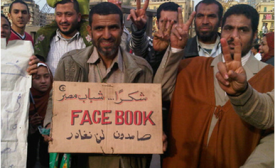united states
It hasn't been the best of times — this week, this month, indeed, this year — for American foreign policy. The US looks imbecilic abroad when a few dozen members of Congress can bring the government to a standstill — later striking a compromise that only offers the same hotheads another shot in the new year. Nor, of course, did the amateurish roll-out of Obamacare enhance the reputation of the leader of the free world.
Attacks on US forces by uniformed Afghan security personnel are now Afghanistan's signature threat, just as improvised explosive devices, or IEDs, were in Iraq. And that new and disquieting reality has me thinking hard about the idea of ‘force protection’ here and how it is changing, or, more precisely, needs to change. During my first trip to Afghanistan in 2010, it was shocking to see how lax the soldiers there seemed to be in their own force protection.
A new book by Naomi Sakr, Transformations in Egyptian Journalism (I.B. Tauris, 2013), should be required reading for American public diplomacy specialists who want to engage Egyptians through the media. Bilingual Sakr, a media policy professor at the University of Westminster and director of its CAMRI Arab Media Centre, draws on new research and decades’ experience tracking Arab media trends to offer a readout on how Egyptian journalists and their employers have been struggling and coping yet also innovating since the 2011 revolution.

A new book by Naomi Sakr, Transformations in Egyptian Journalism (I.B. Tauris, 2013), should be required reading for American public diplomacy specialists who want to engage Egyptians through the media.
In 1971, artist Chris Burden performed his iconic "Shoot" piece before a dozen friends gathered in the F-Space Gallery in Santa Ana, California. Wearing jeans and a t-shirt while standing in front of a white wall, a friend shot a copper jacket bullet from a .22-long rifle into Burden's upper left arm from a distance of 15 feet. The bullet was intended to merely knick the arm, but it went clean through, sending Burden to the hospital and requiring that he report the "accident" to the police.
It was the other guy’s fault, no question. That’s pretty much the explanation for why a major science conference scheduled for December came close to being torpedoed. Astronomers from all over the world were planning to gather at NASA’s Ames Research Center, in Mountain View, California, to talk about new results coming from the planet-hunting Kepler mission.
Germany is paraphrasing Ricky Ricardo today: America's "got some 'splainin' to do." The German Foreign Ministry summoned the American ambassador in Berlin Thursday and told him Germany wants an honest and full explanation of US surveillance operations in Europe.And Chancellor Angela Merkel repeated her concerns that her own mobile phone is being monitored. She told a European summit that "spying among friends" is simply not done, and accused the United States of an unacceptable breach of trust.
Earlier this week, Germany’s Der Spiegel reported the latest leak of confidential documents from former National Security Agency (NSA) contractor Edward Snowden. According to these reports, the NSA monitored former Mexican president Felipe Calderón’s e-mail account and personal communications, gaining insight into Mexico’s political system and internal stability.







